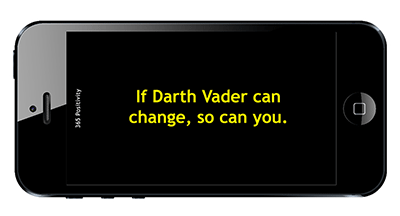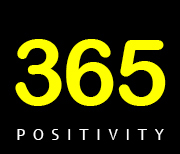
DOES mindfulness REALLY WORK?
It's used by everyone from Google to the US Marine Corps, but can mindfulness really help change you for the better? By Ben Arogundade.
WELLNESS IN STILLNESS: Mindfulness has caught on around the world amongst corporations and individuals alike.
WHAT DO THE US MARINE CORPS, the NHS, Google and the European Central Bank all have in common? The answer is, they all practice mindfulness, the self-improvement phenomenon that is rapidly catching on almost everywhere you look. Mindfulness is based on meditation, and is rooted within 2,500 years of Buddhist teaching. It centres around being perpetually focused on the present moment, or “being in the now”, instead of dwelling on the events or traumas of the past, or else harbouring anxieties about the future. It has been touted as a remedy for everything from stress to chronic illness and depression.
MINDFULNESS REBORN
Modern-day mindfulness began in 1979, when American biologist Jon Kabatt-Zinn had an epiphany during a meditation retreat he was attending. It inspired him to start a mindfulness meditation program to combat stress and chronic pain at the University of Massachusetts Medical School. This became MBSR — Mindfulness Based Stress Reduction.
Today, mindfulness has evolved into a way of life, with a multitude of programs and practices. It has become fashionable with celebrities such as Emma Watson, Hugh Jackman, Ruby Wax, Oprah and Goldie Hawn, as well as a host of blue-chip businesses, municipal organisations and technology companies. “Across the Valley, quiet contemplation is seen as the new caffeine,” says Noah Shachtman in Wired.
MINDFULNESS IN EFFECT
Forward-thinking blue-chip businesses such as Google, Apple, Facebook, Sony and Ikea, have become attracted to mindfulness because they are interested in how it might influence productivity. “Every company knows that if their people have EI [Emotional Intelligence], they’re gonna make a shitload of money,” proclaims Chade Meng-Tang, who heads Google’s Search Inside Yourself mindfulness program, attended by over 1,000 employees so far. Google already responds well to many of its workers physical needs, with free food, dry cleaning and gym membership amongst its perks, and so providing them with a free mind workout as well seems a logical next step. Ultimately the aim is not simply to potentially boost the quality and quantity of Google’s output, but also to keep the talent happy so that they don’t jump ship to rival firms.
Google's ideas on the benefits of mindfulness are echoed in the UK by British Telecom. “A resilient workforce is necessary to build a resilient business,” says Dr. Catherine Kilfedder, BT's group health advisor, who has incorporated mindfulness programs into staff training. It has also permeated politics. US Congressman Tim Ryan is one of mindfulness's biggest evangelists, while back in the UK Parliament, almost 100 MP's, peers and staff have taken mindfulness meditation classes. Mindfulness trainer Michael Chaskalson goes as far as to suggest that the practice could produce better politicians. “Mindfulness, well-taught, increases one's levels of care and concern. Leaders who care more change things for the better.”

WHOSE SIDE IS GOD ON IN SPORTS?
Does The Creator Rig Sports Events In Favour Of Certain Players & Teams?



RECOMMENDED READS ABOUT POSITIVITY
MINDFUL SUCCESSES
Television personality Ruby Wax has talked of how it helped with her fight against depression, while journalist Polly Vernon recently wrote of how, thanks to mindfulness, “I sleep better, I laugh more, I am less prone to compulsive actions. Mindfulness makes self-destructive behaviour eminently avoidable.” In Britain, the NHS has prescribed courses of mindfulness since 2004, for help with anxiety, stress and depression.
Since 2010 there have been over 1,000 clinical studies on mindfulness, and there is now hard data that proves its benefits. Time recently reported on a series of mindfulness tests undertaken on young school children. Results showed higher academic scores, improved social behaviour and concentration levels, lower disciplinary rates and reduced stress in those who participated in mindfulness programs. If it can do this for children, what can it do for adults?
The answer is, a lot. “The regular practice of certain contemplative methods seems to be able to alter the trajectory of age-related changes,” says Richard Davidson, neuroscientist and founder of the Center for Investigating Healthy Minds. “Some studies even show that meditation can slow the age-related decline of grey matter in the brain.”
QUOTES OF CHANGE
But mindfulness is not without its critics. It has been sneered at by some, who see it as yet another neo-spiritual fad for gullible modern-day hippies. “A smug middle class trend” is how The Spectator described it. They, and others, claim that mindfulness encourages self-obsession, with people focusing on themselves as opposed to others, and that much of its practice, which takes place in large organised groups, is reminiscent of the worst aspects of organised religion. It is also come up against charges of being elitist, as the classes can be expensive, with some corporate courses costing £2,000 ($3,000) or more per person. What would the Buddha have to say about the commercial aspects of mindfulness, or even the fact that it is used by the military to make more efficient fighters? (The Buddha, in his wisdom, probably would not judge, knowing that the practice itself would in time change those who use it).
BEST APP BOOST
Aside from mindfulness courses, apps have now also become a growing part of the evolution of the practice. They are important, as they are cheap, they allow users to follow their own practice on their mobiles, at times that are convenient for them and that don’t involve formally congregating in large groups. One of the pioneers at the forefront of digital healthcare is Andy Puddicombe, ex-Buddhist monk and founder of one of the best mindfulness meditation apps, Headspace. “I’d really encourage all of you to prioritise the health of your mind,” says Andy Puddicombe, who has garnered a global reputation for bringing meditation to the masses, and whose app has secured over a million downloads.
A NEW MINDFULNESS QUOTES APP
365 Positivity is amongst the best of the new mindfulness quotes apps, and represents the next step within the genre of digital well-being. The app pings short mindfulness quotes direct to users mobile each day for a year. The daily messages act like a series of digital fortune cookies — each phrase is designed to spark pro-active thought or action that could assist all those seeking change. The app has now been approved by the UK's National Health Service (NHS) as one of its “safe and trusted apps to help you manage your health.”
Rather than re-hashing celebrity quotes or existing wise words, the app’s 365's mindfulness quotes incorporate original creative writing, crafted with a contemporary and often humorous feel which is more relevant to life today. “If Darth Vader can change, so can you,” is one of its many mantras. And this is the ultimate point of mindfulness courses, programs and apps — they promote change — something most of us need to do.

Download your free sample of 365 Positivity.
Approved by the


Information Apps For Health, Wellbeing & Self-Improvement
